Call us now:
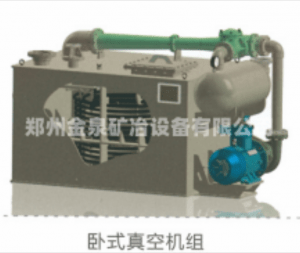
Vacuum unit equipment
I. Equipment Features The vacuum unit is composed of a series of units including anti-corrosion PP water tank, buffer tank, RPP water jet pump, check valve, steam-water jet pump, and
1、The name of our project: Israel platinum-palladium-rhodium refining project
2、Project address: Integrated Logistics Park, Sanya City, Hainan Province
3、Contracting scope: responsible for 100 tons/year gold automatic wet refining Au-1 standard gold, 20 tons/year silver electrolytic refining Ag-1 standard silver turnkey project. The overall project is a turnkey project, the delivered project can meet the normal function of gold refining process production, including the acceptance of alloy gold, gold refining ingots, silver electrolytic refining ingots, hazardous chemical and hazardous waste warehouse, wastewater pretreatment, waste gas treatment, electrical engineering, ancillary supporting facilities and other overall installation, commissioning, etc.
Platinum, palladium and rhodium are rare precious metals with a wide range of uses, including jewelry, electronics, automotive and medical industries. Israel has large deposits of platinum-palladium-rhodium in the southern region, so the country has been carrying out exploration and mining of platinum-palladium-rhodium.
Refining is the process of purifying the metal that is extracted from the mineral. Refining platinum, palladium and rhodium involves several steps, including chemical leaching, dissolution, distillation and electrolysis. These steps require a high degree of specialized knowledge and skill, so refining is usually done by a specialized metallurgical company or vendor.
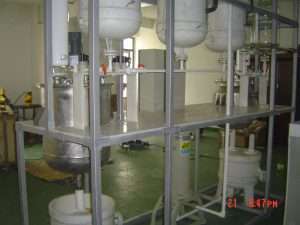
If you have more specific questions or information needs, you can consult with the relevant professional organization our company.
Platinum, palladium and rhodium are three very rare and valuable precious metals that are usually found in copper-nickel minerals or platinum group minerals. For extracting these metals from the minerals and making them into precious metals of high purity, a multi-step refining process is required. The following are some of the steps typically used to refine platinum, palladium and rhodium:
Removal of impurities: The impurities in the minerals, such as sulfur, iron and copper, need to be removed first. This is usually done by mixing the minerals with an acid solution, which dissolves these impurities but does not affect the precious metals.
Dissolution: Next, the clean minerals are mixed with a chemical solvent to dissolve the platinum, palladium and rhodium from the minerals. Commonly used chemical solvents include sodium cyanide and ammonium chloride.
Distillation: The dissolved metals need to be purified by distillation. Distillation can be accomplished by sublimation or sublimation-condensation.
Precipitation: After distillation, a precipitation process is required to form a new compound by adding chemicals and separating the precious metals from it.
Electrolysis: The final step is electrolysis, where a purified solution of platinum, palladium and rhodium is placed in an electrolytic bath and these metals are separated from the solution by electrolysis to produce pure platinum, palladium and rhodium.
Melting: For certain alloys or compounds of platinum, palladium and rhodium, a melting technique is required to separate and purify them. This usually involves placing the metal or compound in a furnace, melting it, and separating the pure platinum, palladium and rhodium by chemical reaction or melt separation.
Oxidation and Reduction: In some cases, platinum, palladium and rhodium need to be further separated and purified by oxidation and reduction. This usually involves reacting the metal or compound with an oxidizing agent to produce an oxide, which is then reduced back to the metal using a reducing agent.
It is important to note that not all of these steps need to be used in every platinum, palladium and rhodium refining process, depending on the source, chemical form and purity requirements of the metal. Also, the refining process for platinum, palladium and rhodium requires a high degree of technical expertise and usually needs to be performed by a specialized metallurgical company or vendor.

I. Equipment Features The vacuum unit is composed of a series of units including anti-corrosion PP water tank, buffer tank, RPP water jet pump, check valve, steam-water jet pump, and
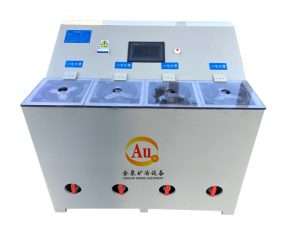
Jinquan Electrochemical Deposition Equipment The electrochemical deposition system has revolutionized traditional metallurgical processes through dynamic flow field control technology and is widely used in
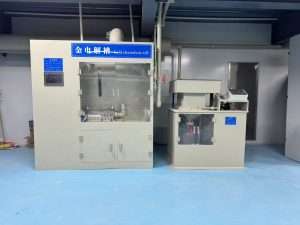
Intelligent gold electrolysis equipment combines automatic control, intelligent monitoring and efficient electrolysis technology. It can process raw gold materials with a purity of more than
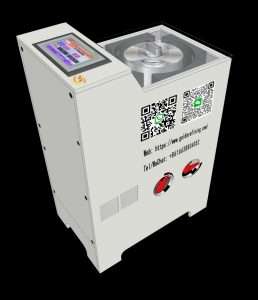
Jinquan Electrolysis - Cyclone Electrowinning Equipment Cyclone electrowinning equipment is widely used in gold plating solution, gold stripping solution, gold ore heap leaching, spraying solution